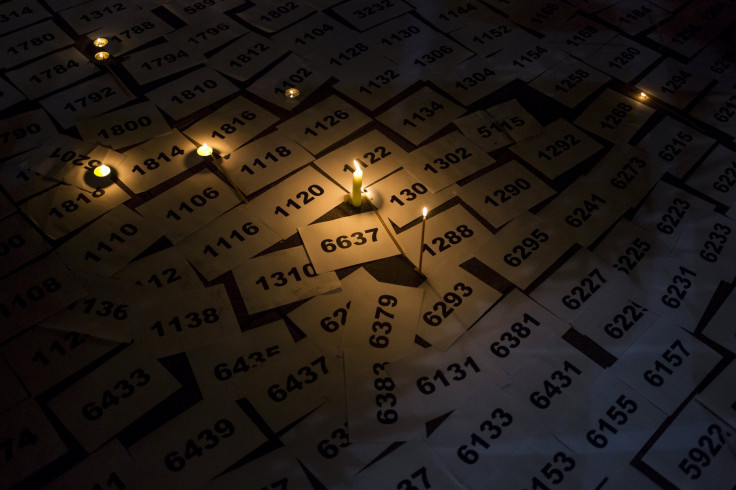Srebrenica Massacre: Serbia Bans Public Gatherings As Bosnia Marks 20th Anniversary Of Genocide

Saturday marks the 20th anniversary of the Srebrenica massacre, in which over 8,000 Bosnian Muslim men and boys were killed by Bosnian Serb forces. While events to commemorate one of the darkest chapters of the three-year Bosnian War have been planned across Bosnia, including in the town of Srebrenica, rallies and gatherings have been banned in the Serbian capital of Belgrade.
“I warn anyone considering rallying anyway that police will neither allow, nor tolerate any gatherings,” Serbia’s Interior Minister Nebojsa Stefanovic reportedly said on Friday.
The ban was announced after several right-wing groups threatened to disrupt the planned events. Originally, demonstrators had planned to mark the anniversary by gathering near the Serbian parliament building, according to media reports. However, following the ban on the gathering, nearly 200 people assembled for a candle-lit vigil near the official building of the Serbian president on Friday evening.

“There are some people in Belgrade who really want to pay respects to the victim from the Srebrenica genocide and despite the fact that our gathering in front of the parliament as we planned, is banned, we gathered here,” Aneta Mitic, one of the protest organizers, told Reuters.
On July 11, 1995, amid a violent break-up of Yugoslavia into independent states, nearly 8,400 Bosnian Muslims were killed when Bosnian Serb forces commanded by General Ratko Mladic raided a U.N. “Safe Area” in the town of Srebrenica in northeastern Bosnia.
“The whole world should show that there is life here after the deaths. We need to persuade people to invest here and have their future here, especially the young people,” Hasan Hasanovic, a Srebrenica resident who survived the massacre when he was 19, told BBC. “If young people leave, Srebrenica will die. So my question is -- does the world want Srebrenica to die again?”
On Saturday, up to 50,000 people, including foreign dignitaries such as former U.S. president Bill Clinton and European Union’s foreign policy chief Federica Mogherini are expected to be present at the official ceremony in Srebrenica marking the anniversary. Serbia's Prime Minister Aleksandar Vucic is also planning to travel to Bosnia for the event, according to media reports.
Two international courts, including the International Court of Justice, have already labeled the massacre as genocide. Additionally, a U.N. tribunal at The Hague has convicted several people for their involvement in the Srebrenica killings.
Mladic and former Bosnian Serb leader Radovan Karadzic are both currently on trial at The Hague for crimes related to the massacre.
However, just days before the anniversary, Russia lent its support to Serbian claims that the massacre was not genocide and vetoed a United Nations Security Council resolution to label it as such, eliciting angry reactions from the U.S., the U.K. and the European Parliament.
“MEPs [Members of the European Parliament] reject any denial, relativization or misinterpretation of the genocide and say its 20th anniversary should be a fresh reminder of the dangers of extreme forms of nationalism and intolerance in society, further exacerbated in the framework of war,” the European Parliament said in a statement released Thursday.
© Copyright IBTimes 2025. All rights reserved.






















